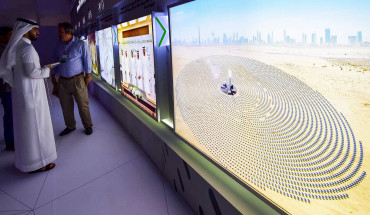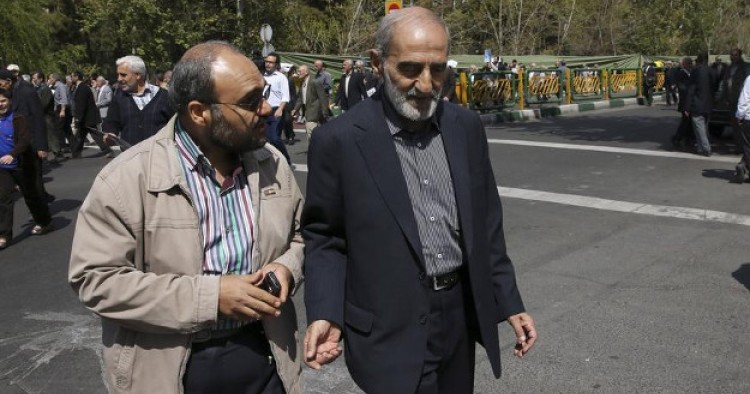A prominent voice for Iran’s hardliners has denounced the 2015 nuclear deal and demanded that the Islamic Republic emulate North Korea in resisting American pressure and threats. “They say the J.C.P.O.A. is a good model,” said Hossein Shariatmadari, the editor-in-chief of Kayhan newspaper, referring to the Joint Comprehensive Plan of Action. “Yes, it certainly is so but for the Americans not for Iran,” he added. “Iran only granted concessions in J.C.P.O.A. A J.C.P.O.A. that does not amount to lifting of sanctions heals no pain.” He further stressed that the Iranian government should not be worried about Washington’s potential plan to walk away from the nuclear deal because the accord is not in Iran’s interests at the first place.
Shariatmadari, who is appointed by Supreme Leader Ali Khamenei as Kayhan’s editor, also downplayed the U.S. threat of a military action if Tehran resumes high-level nuclear enrichment. “Amid confrontation with America, Iran has managed to become the No. 1 military and technological power in the region. The enemy is hopeless about a military confrontation with Iran, and it’s just a bluff when they say the military option is on the table.” The United States and its allies failed to do any harm to Iran during the Iran-Iraq war when the Iranian armed forces were in a complete disarray, he added, pointing out that country’s military forces are much stronger today.
Shariatmadari also pointed out that Washington has not taken any actions against North Korea despite Pyongyang’s nuclear and missile activities. “North Korea, which compared to Iran lacks the power of popular support for the government, is taking actions counter to America’s demands. Therefore, Iran, which is far more powerful, can easily stand up to America.” He continued: “All American threats show that the country today does not have sufficient military power to confront Iran. Trump should know that Iran is not North Korea and should not try to scare the people of the shadow of war.”
Comment: With the Trump administration imposing new sanctions on Iran and throwing the fate of the nuclear in doubt, Iranian hardliners, who opposed the nuclear deal at the first place, feel vindicated and have stepped up pressure on the Rouhani government to resist American pressure and take retaliatory actions against Washington. While the Rouhani team have hinted that even if the Trump administration unilaterally leaves the accord, Tehran might remain committed to the deal and work with Europeans and other willing partners around the world to isolate Washington, hardliners do not share that view. They argue that European powers would ultimately side with Washington to re-impose some of pre-J.C.P.O.A. sanctions. They also point out that Iran has not benefited much from the deal because unilateral U.S. sanctions have discouraged major international banks and companies from investing in and doing business with Iran.
The Middle East Institute (MEI) is an independent, non-partisan, non-for-profit, educational organization. It does not engage in advocacy and its scholars’ opinions are their own. MEI welcomes financial donations, but retains sole editorial control over its work and its publications reflect only the authors’ views. For a listing of MEI donors, please click here.












